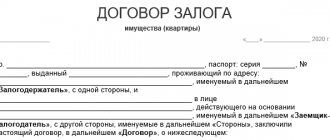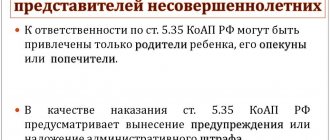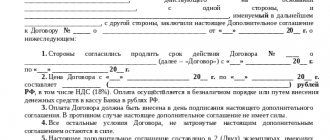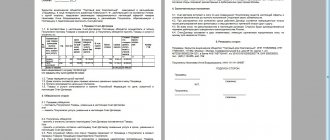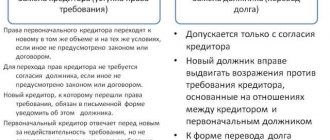The limited legal capacity of minors and their age determine the requirements for the transactions they make and the ability to carry them out independently. Thus, children from 6 to 14 years old have the right, for example, to buy inexpensive toys and receive movable property as a gift. The rest of the transactions are carried out on their behalf by their parents.
Children from 14 to 18 years of age can, in addition to these transactions, exercise copyrights, open bank deposits and manage their income. To carry out other transactions, they will need parental consent. Transactions that could be made by children under 6 years of age are not provided for by law. Requirements for transactions made by minors The special legal status of minors is associated with the limitation of their legal capacity, which, as a rule, arises in full with the onset of adulthood (on reaching the age of 18 years). The exceptions are cases of acquiring full legal capacity upon marriage before reaching 18 years of age or declaring a minor who has reached 16 years of age fully capable (emancipation) (clauses 1, 2 of Article 21, clause 1 of Article 27 of the Civil Code of the Russian Federation). Requirements for transactions made by minors are determined based on the limitation of legal capacity depending on age (up to 14 years or from 14 to 18 years). Thus, for minors under 14 years of age (minors), most transactions can be made on their behalf only by their parents, adoptive parents or guardians. At the same time, property liability for such transactions, as well as for transactions made by minors independently, is borne by their parents, adoptive parents or guardians, unless they prove that the obligation was violated through no fault of theirs. In addition, these persons are responsible for harm caused by minors (clauses 1, 3, Article 28 of the Civil Code of the Russian Federation). Note! Giving on behalf of minors, with the exception of ordinary gifts worth no more than 3,000 rubles, is prohibited (clause 1, clause 1, article 575 of the Civil Code of the Russian Federation). Minors aged 14 to 18 years can make transactions with the written consent of their parents, adoptive parents or trustees (including with their subsequent written approval of the transaction). The exception is transactions that minors can carry out independently. Minors of the specified age group independently bear property liability for transactions made by them (both independently and with the consent of their legal representatives), and are responsible for the harm caused by them (clauses 1 - 3 of Article 26 of the Civil Code of the Russian Federation). If guardianship (for minors) or trusteeship (for children aged 14 to 18 years) is established over minors, in order to carry out transactions related to the disposal of their property, it is necessary to obtain prior permission (consent) from the guardianship and trusteeship authority. This rule applies to transactions involving the alienation of the ward’s property, leasing it out, for free use or as a pledge, to transactions entailing the renunciation of the rights belonging to the ward, the division of his property or the allocation of shares from it, as well as any other actions entailing a decrease in the ward’s property. A guardian, trustee, their spouses and close relatives do not have the right to enter into transactions with the ward, with the exception of transferring property to him as a gift or for free use. Also, these persons cannot represent the ward when concluding transactions between him and the spouse of the guardian or trustee and their close relatives (clause 1 of Article 32, clause 1 of Article 33, clauses 2, 3 of Article 37 of the Civil Code of the Russian Federation). A special rule has also been established for transactions involving the alienation of real estate owned by a minor: such transactions are subject to mandatory notarization, regardless of the age of the minor. At the same time, failure to comply with the notarial form of the transaction entails its nullity (clause 1, clause 2, clause 3, article 163 of the Civil Code of the Russian Federation; part 2, article 54 of the Law of July 13, 2015 N 218-FZ). Transactions that minors can carry out independently Depending on their age, minors from 6 to 18 years old can carry out certain transactions independently. Transactions that minors under 6 years of age could independently carry out are not provided for by law. Minors aged 6 to 14 years have the right to independently carry out the following transactions (clause 2 of Article 28 of the Civil Code of the Russian Federation): - small household transactions (for example, buying groceries or inexpensive toys); — transactions aimed at obtaining benefits free of charge, which do not require notarization or state registration (for example, receiving movable property as a gift); - transactions for the disposal of funds provided by a legal representative or with his consent by a third party for a specific purpose or for free disposal. Minors aged 14 to 18 years, in addition to the indicated transactions, have the right independently, without the consent of their legal representatives (Clause 2 of Article 26 of the Civil Code of the Russian Federation): - to exercise the rights of the author of a work of science, literature or art, invention or other legally protected result of their intellectual activity ; — make deposits in credit organizations and manage them; - manage your earnings, scholarships and other income. Note: The court, at the request of legal representatives or the guardianship and trusteeship authority, if there are sufficient grounds, may limit or deprive a minor of the above right (clause 4 of article 26 of the Civil Code of the Russian Federation). Consequences of transactions made by minors that they do not have the right to carry out independently. A transaction made by a minor (with the exception of transactions that he has the right to make independently) is void. Each party to such a transaction is obliged to return to the other everything received in kind, and if this is impossible, to reimburse its cost. In addition, if the other party to the transaction is a legally capable person who knows that he is entering into a transaction with a minor, such person is obliged to compensate the minor for actual damages. At the same time, at the request of the parents, adoptive parents or guardian of a minor, the court may recognize the transaction as valid if it was made for the benefit of the child (Clause 1 of Article 171, Article 172 of the Civil Code of the Russian Federation). A transaction made by a minor aged 14 to 18 years without the consent of his legal representative in cases where such consent is required is voidable and can be declared invalid by the court at the request of the legal representative. The consequences of declaring such a transaction invalid are the same as those indicated above when making a transaction by a minor (Article 175 of the Civil Code of the Russian Federation).
Transactions with property of minors
In accordance with Article 37 of the Civil Code of the Russian Federation, all transactions with property owned by minors are carried out exclusively with the prior consent of the guardianship and trusteeship authority.
The child’s property includes real estate, inherited property (housing, cars), securities, and cash.
Preliminary consent for the alienation of residential premises, among the owners of which are minors, is issued, as a rule, subject to the simultaneous acquisition in the name of the child of an equivalent or larger living space, which is an effective measure to protect the rights of children, regardless of their category (orphans and children left without parental care, children from disadvantaged families, children living with their parents).
When deciding on the issue of issuing preliminary permission for a transaction to alienate a child’s residential premises, the guardianship and trusteeship authorities are guided by the following provisions of the law:
Article 37 of the Civil Code of the Russian Federation - a guardian or trustee of a minor has no right, without the prior consent of the guardianship and trusteeship authority, to enter into transactions for the alienation of property belonging to the minor.
A guardian, trustee, their spouses, close relatives do not have the right to enter into transactions with the ward, with the exception of the transfer of property to the ward as a gift or for free use, as well as to represent the interests of the ward when concluding transactions or conducting legal cases between the ward and the spouse of the guardian or trustee and their close relatives.
Article 60 of the Family Code of the Russian Federation - when parents exercise powers to manage property belonging to a minor, they are subject to the rules established by civil legislation regarding the disposal of the property of a ward (Article 37 of the Civil Code of the Russian Federation)
Article 26 of the Civil Code of the Russian Federation establishes the legal capacity of a minor who has reached the age of 14 years. Such a minor must have a passport. He submits applications for permission independently, acting with the consent of his parents.
Article 28 of the Civil Code of the Russian Federation establishes the procedure for legal representatives to act on behalf of their minor children under the age of 14 years.
Article 292 of the Civil Code of the Russian Federation: alienation of residential premises, if minors, incapacitated or partially capable family members of the owner live in it, if this affects the rights or legally protected interests of these persons, is carried out with the consent of the guardianship and trusteeship authority. In particular, permission from the guardianship and trusteeship authority is necessary if: - the right of use in the residential premises being sold is recognized for a minor placed in foster care in a state institution; — the family is recognized as dysfunctional and is registered with the social protection authorities; - the family includes a minor or incapacitated adult citizens over whom guardianship has been established.
Article 2 of Federal Law No. 154-1 of July 4, 1991. “On the privatization of the housing stock in the Russian Federation - the privatization of residential premises in which minors live is carried out only with the participation of minors.
Article 74 of the Federal Law “On Mortgage” No. 102-FZ of July 16, 1998 - mortgage of residential premises or apartments owned by minors, partially capable or incompetent persons over whom guardianship (trusteeship) has been established is carried out in the manner established by the current legislation for transactions with the property of minors.
An approximate list of documents required for submission to the guardianship and trusteeship authorities
1) an application from the legal representative of a minor under the age of 14 for permission to alienate residential premises belonging to the minor; 2) an application from a minor aged 14 to 18 years and an application from his legal representative to allow the legal representative of the minor to consent to the alienation of residential premises belonging to the minor;
Applications are accepted with mandatory identification of the citizens applying, which is recommended to be noted on the application. The text of the application must contain: - information about the category of the transaction being made (exchange, sale, etc.) indicating the existing share of the minor in the right of common ownership and acquired as a result of the transaction; — reasons for the transaction (moving away, purchasing a larger living space, moving to a new place of residence, etc.); - obligations of a minor aged 14 to 18 years, a legal representative, regardless of the age of the minor, to provide a copy of the document for residential premises acquired in the name of the minor as a result of the transaction; 3) a statement from relatives about their consent to accept a minor for temporary residence before purchasing residential premises in cases where the sale of housing is carried out in connection with participation in shared construction; 4) written consent of the owners for the sale of residential premises purchased by a family, including minors; 5) copies of passports, birth certificates of minors; 6) copies of title documents for residential premises that are alienated and that are acquired as a result of a completed transaction; 7) a copy of the technical passport for the residential premises indicating the percentage of wear; if necessary - an inspection report of the residential premises; an act of inspection of residential premises purchased outside the city of Chelyabinsk, and the conclusion of the guardianship and trusteeship authorities at the location of this residential premises on the possibility of a minor living in it; availability of conditions for minors to receive education and medical care; employment opportunities; 9) copies of agreements for shared participation in housing construction; 10) certificate of registration at the place of residence of the minor; 11) a copy of a personal bank account in the name of a minor for crediting funds from the sale of his share in the ownership of residential premises, if there is no need to purchase other housing; 12) in case of separation - copies of supporting documents (divorce certificate; copies of title documents for all residential premises, etc.); 13) other documents necessary at the discretion of the guardianship and trusteeship authority to protect the housing rights of minors.
The text of the application must contain: - information about the category of the transaction being made (exchange, sale, etc.) indicating the existing share of the minor in the right of common ownership and acquired as a result of the transaction; — reasons for the transaction (moving away, purchasing a larger living space, moving to a new place of residence, etc.); - obligations of a minor aged 14 to 18 years, a legal representative, regardless of the age of the minor, to provide a copy of the document for residential premises acquired in the name of the minor as a result of the transaction; 3) a statement from relatives about their consent to accept a minor for temporary residence before purchasing residential premises in cases where the sale of housing is carried out in connection with participation in shared construction; 4) written consent of the owners for the sale of residential premises purchased by a family, including minors; 5) copies of passports, birth certificates of minors; 6) copies of title documents for residential premises that are alienated and that are acquired as a result of a completed transaction; 7) a copy of the technical passport for the residential premises indicating the percentage of wear; if necessary - an inspection report of the residential premises; an act of inspection of residential premises purchased outside the city of Chelyabinsk, and the conclusion of the guardianship and trusteeship authorities at the location of this residential premises on the possibility of a minor living in it; availability of conditions for minors to receive education and medical care; employment opportunities; 9) copies of agreements for shared participation in housing construction; 10) certificate of registration at the place of residence of the minor; 11) a copy of a personal bank account in the name of a minor for crediting funds from the sale of his share in the ownership of residential premises, if there is no need to purchase other housing; 12) in case of separation - copies of supporting documents (divorce certificate; copies of title documents for all residential premises, etc.); 13) other documents necessary at the discretion of the guardianship and trusteeship authority to protect the housing rights of minors.
Preliminary permission for the alienation of residential premises is usually issued within 10 to 15 days. However, in complex or controversial situations, this period may be longer. Permission to alienate residential premises is issued by a resolution of the head of the district administration, which clearly sets out the conditions under which this alienation is possible.
If, as a result of the transaction, the actual living conditions of minors worsen, or their share of property decreases, the guardianship and trusteeship authorities have the right to decide to refuse to issue preliminary permission to complete the transaction. Citizens have the right to challenge a written refusal by the guardianship and trusteeship authorities in court.
After completing the transaction, legal representatives are required to submit to the Department of Social Protection of the Population, within a specified period, copies of title documents for the acquired residential premises in order to confirm compliance with the rights and interests of minors.
Sample contract agreement with a person under 18 years of age
1. The seller is a minor (minor). On behalf of the minor Seller, the contract is concluded by the legal representative - the mother, acting with the written permission of the guardianship and trusteeship authority.
2. The buyer has a spouse and enters into an agreement with the written consent of the spouse, certified by a notary.
3. A contract for the sale of real estate, in which a minor owner alienates the real estate belonging to him (entirely or some part of it) is subject to mandatory notarization.
At the same time, the parties to the transaction can draw up a draft agreement on their own and thus save a certain amount of money when paying the notary for legal and technical services.
